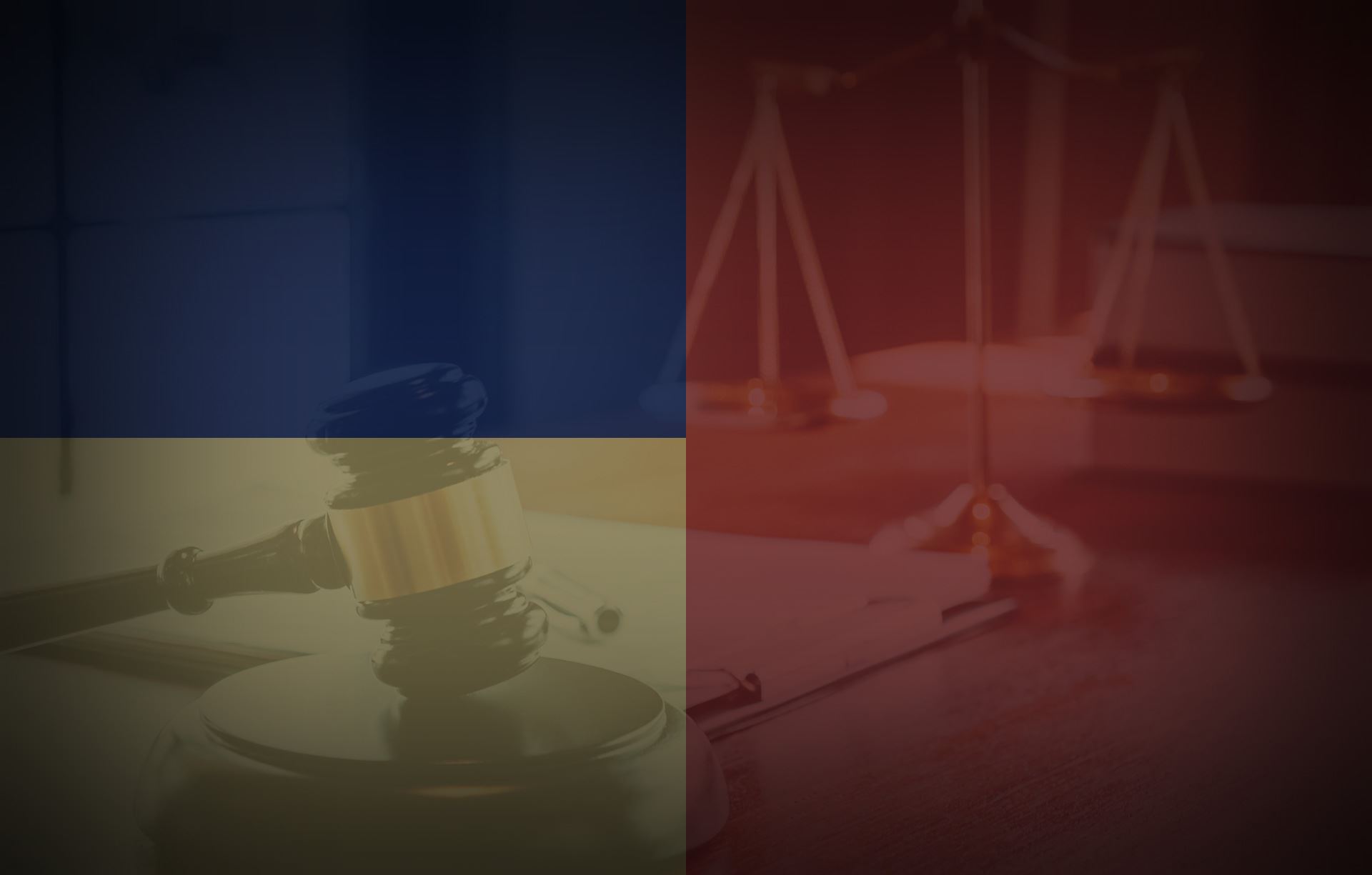
Understanding Criminal Justice
Arrest
A person accused of a criminal offense or serious traffic matter may be taken into physical custody by a law enforcement officer. Depending on the nature of the criminal offense, a judicial official, decides whether a person will remain incarcerated pending their trial or placed on a bond. A bond is a promise to appear in court coupled with monetary provisions in case a defendant does not come to court. A bond generally includes conditions such as good behavior, staying within the state, and timely appearing in court. A court may require that a person be released only to a professional bondsman.
Courts
The judicial branch of government exists to resolve disputes according to law, justice, and the rule of reason . The main component of the judicial system is the trial court, which is presided over by a judge. In criminal and traffic matters, courts conduct trials to determine an defendant's guilt or innocence. Decisions are designed to be made objectively and impartially by evaluating case facts and applicable law. There are many rules and procedures designed to promote fair, just, and impartial court decisions. In the United States, there are separate federal and state court systems. Each court system has separate jurisdiction or power to hear certain matters. In Virginia, the state trial courts are the General District Courts, the Juvenile and Domestic Relations Court, and the Circuit Courts. The District Courts have jurisdiction to conduct trials by judges for misdemeanors and traffic cases, and to conduct preliminary hearings for felony matters. The Juvenile and Domestic Relations Courts initially conduct hearings for matters involving juveniles and some domestic matters. District Court and Juvenile matters are appealable de novo to the Circuit Court. Circuit Courts conduct judge or jury trials for felonies and for misdemeanor and traffic appeals. Circuit Court decisions may be appealed to the Virginia Court of Appeals. Thereafter, a defendant could seek an appeal (writ) from the Virginia Supreme Court.
Despite elaborate rules and procedures designed to promote accuracy and reliability, the judicial process is not perfect and is subject to the same limitations intrinsic in all human activities . For example, evidence and facts presented at trial may differ with one's expectations; witnesses may not be believed; and judges or juries may have differing views regarding the law or evidence. Consequently, there is always an element of risk going to court, and guaranteed outcomes are generally impossible.
Judges
Judges are judicial officers who are in charge of court proceedings. They have extensive power to administer and control any matter properly before them. The judge's power and authority includes the possibility of incarceration for anyone in contempt of their orders. One important role of a judge is to insure the proper administration of trials and court proceedings. Judges are responsible to properly and fairly administer established rules and procedures. In bench trials, judges also make the final decision regarding the legal and factual issues of a case. In jury trials, a group of citizens makes this decision, while the judge makes sure the proceedings are properly conducted.
Attorneys
Attorneys are professionals licensed by a state who usually have graduated from an accredited law school. Generally, this means that they have at least seven years of university education, and have passed a state bar exam. Attorneys must comply with legal and ethical rules. They can be admitted to practice in particular jurisdictions and allowed to represent clients in court proceedings. Despite these general requirements, attorneys differ significantly in their knowledge, experience, skills, and overall abilities. Some attorneys may have years of trial experience while others may focus in other legal areas not involving going to court. In criminal cases, a prosecutor represents the state, and a defendant is represented by a private attorney, court appointed attorney, or a public defender. Within the bounds of legal and ethical considerations, it is the duty of each attorney to represent their client and to advocate the legal, factual, evidentiary, and practical considerations of their case.
Witnesses
Witnesses are people who formally provide information to a court through testimony. Courts, Judges and jurors, need accurate and reliable information to make correct decisions. The court's primary source of such information is the testimony of witnesses. Important rights, duties, and responsibilities are determined by what witnesses say or fail to say during a trial. Witnesses are generally classified as factual, character, or expert witnesses. Fact witnesses testify regarding some aspect of the factual issues of a case. Character witnesses generally testify regarding some relevant trait or characteristic of a party or other witness. Expert witnesses testify regarding relevant matters that require some specialized training or knowledge. The main problem with witnesses is that people can say anything. Even in the best of circumstances, people are seldom completely accurate. Moreover, people can lie; people can make mistakes. The correctness of information is always important. It is up to judges or a juror to determine what information they believe. This is not always an easy task. Judges and jurors have their own viewpoints and feelings, and the interpretation of evidence and testimony frequently varies.
Arraignment and Pleas
The arraignment is the procedure of bringing an defendant before the court, the advising them of the charges, and asking them what is their plea to the charges. This is usually done the day of the trial, but can be done before the trial date. A plea is the defendant's answer to a criminal charge. It is usually made to the judge immediately before the trial. The judge will ask a defendant how do they wish to plea. A plea must be intelligently and voluntary. Therefore, judges usually question defendants to insure that their plea is made voluntarily with an understanding of the nature of the charge and the consequences of their plea.
There are several different types of pleas. A guilty plea is an admission that a defendant committed the alleged offense. No additional facts are needed to reach a verdict. A plea of guilty waives all but jurisdictional objections, impermissible sentence objections, and the objection that no offense is charged. It entirely relieves the prosecution of the burden of proving any facts. If a defendant pleads guilty to a felony, they are waiving their right to an appeal, except on jurisdictional grounds or the imposition of an impermissible sentence. On a plea of guilty, the court makes all decisions regarding the outcome of the case.
An Alford plea, usually made in conjunction with a plea agreement, is a special plea that results in a defendant being found guilty. This plea is generally made to reduce exposure to more serious punishment that could result from a trial. For example, a defendant believes they are innocent but the evidence against them is substantial and there is a significant risk that they would be found guilty and receive a significant punishment. The prosecutor has offered a plea agreement, instead of risking the uncertain results of a trial, the defendant agrees to accept the plea proposal, and makes an Alford Plea. A defendant is nonetheless found guilty, though maintaining their subjective belief in their innocence.
A nolo contendere or no contest plea is usually an indication that a defendant does not wish to defend the charges against them. It in effect has the same consequences as a guilty plea.
A not guilty plea denies one committed the alleged offense. A no plea is a noncommittal assertion in which the court will enter a plea of not guilty. The prosecuting authority is then required to prove guilt beyond a reasonable doubt. A defendant has the right to defend themselves.
Click Here to Read More

-
 TENS OF THOUSANDS OF CLIENTS HELPED. MILLIONS OF DOLLARS WON.Delivering real results for clients through strategic legal representation, dedication, and a proven track record of success in personal injury matters.
TENS OF THOUSANDS OF CLIENTS HELPED. MILLIONS OF DOLLARS WON.Delivering real results for clients through strategic legal representation, dedication, and a proven track record of success in personal injury matters. -
 EVERY CLIENT IS SPECIAL. EVERY CASE IS IMPORTANT.We believe in treating every client as unique and every case as significant, ensuring personalized attention and dedicated advocacy.
EVERY CLIENT IS SPECIAL. EVERY CASE IS IMPORTANT.We believe in treating every client as unique and every case as significant, ensuring personalized attention and dedicated advocacy.

Hear From Our Clients
At Larry King Law, your satisfaction is our priority! See for yourself what our clients have to say about working with us.
-
"Knowledgeable, Experienced and Committed Trial Lawyers"
The process of choosing the right criminal defense lawyer(s) can be daunting, scary, and frustrating. Choosing wrong can not ...
- Delmas Linhart -
"They Fight For Their Clients!"
Mr. King, his associates and paralegals helped me through a very difficult time in my life. I was in a car accident with my 2 ...
- Rachael -
"Great experience!!"
I was confused and embarrassed to admit I needed help but, this was a painless ordeal and I was treated with respect and unde ...
- Stacy kahler -
"Consummate Professional"
As a police supervisor, I have known Larry King professionally for over 30 years. During that time I have always found him to ...
- Lieutenant J. W. Boswell, NNPD, Retired
-
 The Power of ExperienceCharged with a crime? Put the right attorney in your corner. We fight for the accused.
The Power of ExperienceCharged with a crime? Put the right attorney in your corner. We fight for the accused. -
 The Right LawyerWe know how to defend our clients against criminal accusations. Let us help today!
The Right LawyerWe know how to defend our clients against criminal accusations. Let us help today! -
 Get Help TodayGet a smart, skilled fighter on your side. Free consultations are available.
Get Help TodayGet a smart, skilled fighter on your side. Free consultations are available.





















